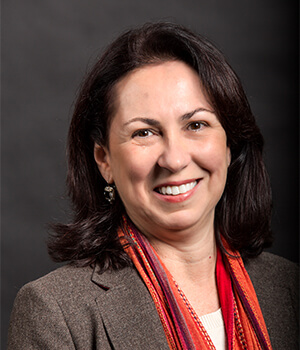
- lgalvao@uwm.edu
- Cunningham Hall 447
Loren Galvao, MD, MPH
- Senior Scientist
Dr. Galvao is a public health physician with twenty-plus years of experience in global health programs and research, with a major focus on HIV prevention, maternal & reproductive health and family planning in less developed countries. She is a Senior Scientist, Global Health, at the UWM’s College of Nursing (CON) Center for Global Health Equity (CGHE) and a Honorary Fellow, Population Health Sciences at the University of Wisconsin (Madison) School of Medicine and Public Health.
Before joining the UW system in 2003, she worked extensively in global health for over seventeen years, with experience in twenty countries in Africa, Asia, Latin America, and Europe. From 1995-2001 she was National Advisor for the Reproductive Health/HIV/AIDS Program at the Population Council-Brazil and worked at Save the Children-USA (1991-1995). She served as a consultant for several international and academic institutions, including the World Health Organization, EngenderHealth, and others.
During the past decade, she also devoted part of her time to programs in the United States, with a primary focus on population health and community-based research. During that period, she held other academic appointments as Associate Director for the University of Wisconsin (Madison) School of Medicine and Public Health SHOW Project, Milwaukee study site and Associate Director for Community Partnerships at the Center for Urban Population Health CUPH.
Her primary research interests and publications are prevention of HIV/AIDS among women and other vulnerable populations; maternal & reproductive health and family planning globally; evaluation of the effectiveness of multilevel ecological/structural interventions on HIV and other health outcomes in resource-limited settings.
Dr. Galvao’s major project is funded by the National Institute of Child Health and Human Development (NIH-NICHD). She is a Co-Investigator and the UWM’s CGHE site Principal Investigator on a study entitled “Pathways Linking Poverty, Food Insecurity, and HIV in Rural Malawi.” This 5-year study in rural Malawi examines the impact of a multi-level ecological intervention (economic development, sustainable agriculture training and food security) on HIV vulnerability and other health outcomes. This is a collaboration of the UWM Zilber School of Public Health, the University of Wisconsin-Milwaukee CON’s Center for Global Health Equity, CARE-USA and CARE-Malawi.